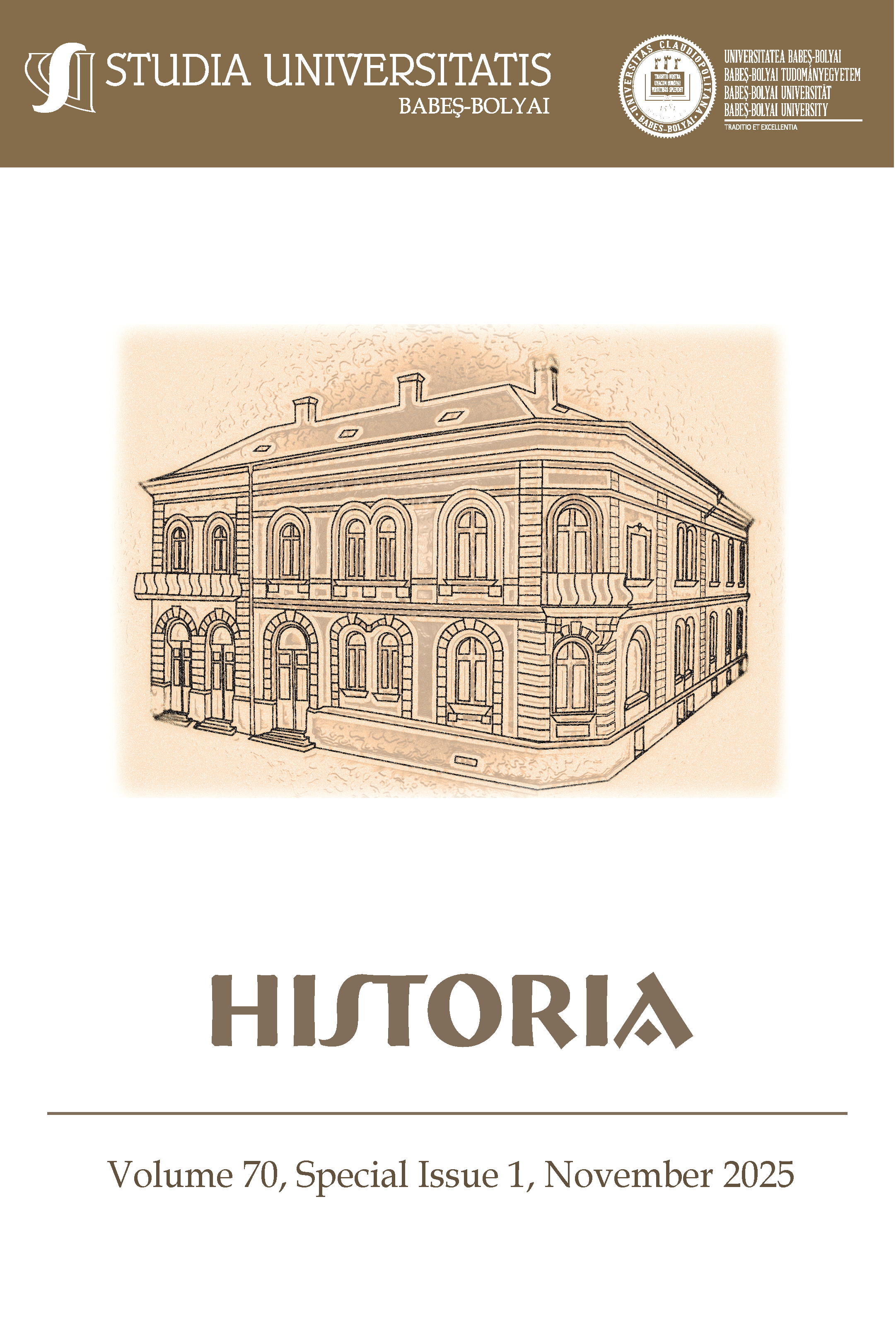Studying Small Medieval Communities in the Light of the Historiographical Revival of the Commons. The Case of Saint-Rémy-de-Provence (13th-mid 14th-century)
DOI:
https://doi.org/10.24193/subbhist.2025.sp.iss.1.03Keywords:
Commons, Provence, Middle-Ages, Communities, Historiography, Annales, AgricultureAbstract
Commons, either collective rights or common goods, were seen for a long time as archaism, and compelled to disappear. The French Annales school shows great interest in the long-term evolution of collective rights, i.e. grazing and wood cutting. In recent decades, common goods have been reinterpreted and re-evaluated. In medieval history, Italian historiography has entered a fruitful dialogue with the modernists to place commons in a long-term perspective, to study how they were created, managed and evolved, and to show their fundamental role in the history and functioning of communities, considering the contributions of other social sciences under the influence of Anglo-American research. The small medieval community of Saint-Rémy-de-Provence gives a well-documented case study. After presenting the collective rights seen by French historiography, this article shows how the community tried to regulate them between 1290 and 1350. Then, to understand the common good of this Provençal community, a swamp bought under emphyteusis, the Italian historiography gives important leads. Commons were progressively restrained by the community, excluding foreigners: this change favoured agricultural activities at the expense of grazing. Leaving the hand of the Count of Provence, common goods were appropriated by the community, through private ownership.
Rezumat: Comunalitățile, fie că este vorba de drepturi colective sau de bunuri comune, au fost considerate mult timp ca fiind arhaice și condamnate să dispară. Școala franceză Annales manifestă un mare interes pentru evoluția pe termen lung a drepturilor colective, adică pășunatul și tăierea lemnului. În ultimele decenii, bunurile comune au fost reinterpretate și reevaluate. În istoria medievală, istoriografia italiană a intrat într-un dialog fructuos cu moderniștii pentru a plasa bunurile comune într-o perspectivă pe termen lung, pentru a studia modul în care au fost create, gestionate și au evoluat și pentru a arăta rolul lor fundamental în istoria și funcționarea comunităților, luând în considerare contribuțiile altor științe sociale sub influența cercetării anglo-americane. Mica comunitate medievală din Saint-Rémy-de-Provence oferă un studiu de caz bine documentat. După prezentarea drepturilor colective conform istoriografiei franceze, acest articol arată cum respectiva comunitate a încercat să le reglementeze între 1290 și 1350. Apoi, pentru a înțelege bunul comun al acestei comunități provensale, o mlaștină cumpărată în emfiteuză, istoriografia italiană oferă indicii importante. Bunurile comune au fost restricționate progresiv de comunitate, excluzând străinii: această schimbare a favorizat activitățile agricole în detrimentul pășunatului. Părăsind mâna contelui de Provence, bunurile comune au fost însușite de comunitate, prin proprietate privată.
Cuvinte cheie: Agricultură; Anale; Bunuri comune; Comunități; Epoca Medievală; Istoriografie.
Downloads
Published
How to Cite
Issue
Section
License
Copyright (c) 2025 Studia Universitatis Babeș-Bolyai Historia

This work is licensed under a Creative Commons Attribution-NonCommercial-NoDerivatives 4.0 International License.



